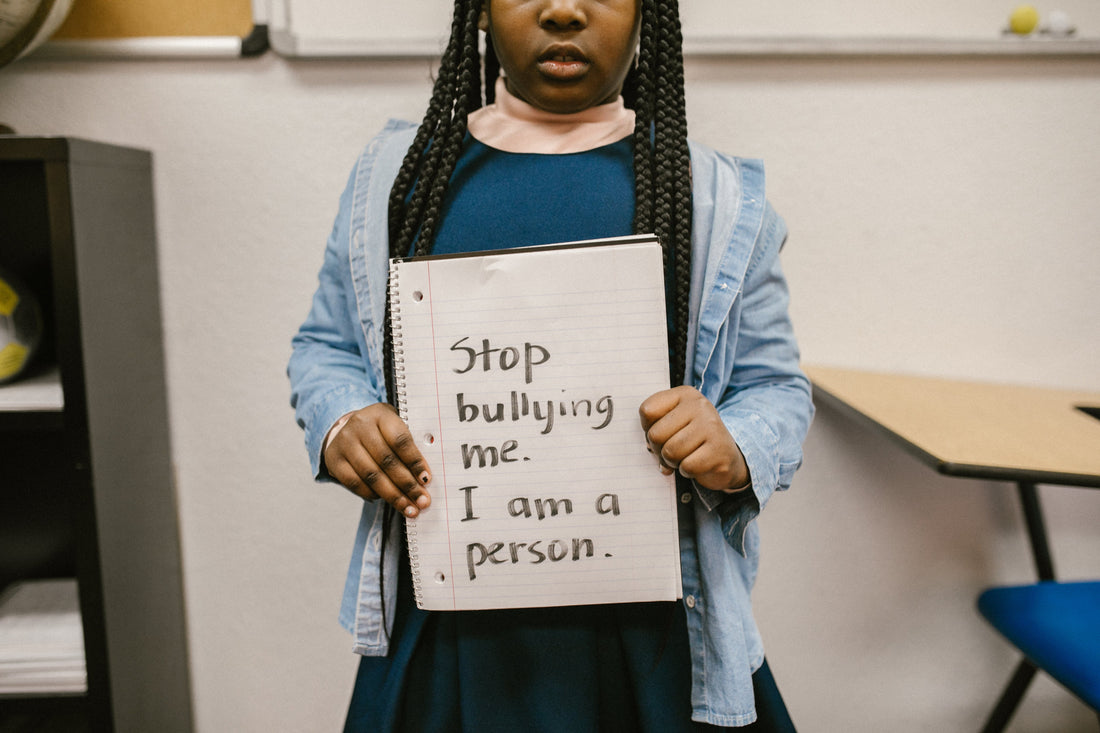Anti-Bullying Resources and Support

Resources for Anti-Bullying Support
Anti-Bullying Government & Non-Profit Organizations
- Samhsa.gov: In crisis? Call or Text 988. The 988 Lifeline provides 24/7, free and confidential support for people in distress, prevention and crisis resources for you or your loved ones, and best practices for professionals in the United States.
- StopBullying.gov : The official anti-bullying website of the U.S. Government, offering resources for parents, educators, and students.
- The Trevor Project: Offers crisis intervention and suicide prevention services to LGBTQ+ youth.
- The Jed Foundation: Works to protect the mental health of young people.
Anti-Bullying Online Communities and Support Groups
- PACER's National Bullying Prevention Center: Provides a variety of resources, including facts, prevention tips, and support for victims and their families.
- The Cyberbullying Research Institute: Provides information and resources on cyberbullying prevention and response.
Counseling and Therapy Resources
- BetterHelp: Connects you with licensed therapists online for convenient and confidential mental health support.
- PsychologyToday: Helps you find a therapist in your area or online, specializing in various mental health concerns.
Stand Up Against Bullying
A Comprehensive Guide to Anti-Bullying Awareness
Bullying is a pervasive issue that affects people of all ages, backgrounds, and walks of life. In this article, we explore the significance of anti-bullying awareness, providing insights into the impact of bullying and offering resources for support and prevention.
Understanding Bullying
What is Bullying?
Bullying is a deliberate and repeated aggressive behavior aimed at causing harm to someone perceived as less powerful. It involves a power imbalance and can take various forms, such as verbal, physical, social, or online harassment. Bullying has serious consequences for the victim's emotional and psychological well-being, and addressing this issue involves raising awareness, fostering empathy, and implementing preventive measures.
What are the Effects of Bullying?
Bullying can have a range of profound and long-lasting effects on both the individuals who are targeted (victims) and those who engage in bullying behavior (bullies). Here are some common effects:
Effects on Victims
Emotional Impact:- Depression and Anxiety: Victims often experience increased levels of depression and anxiety.
- Low Self-Esteem: Constant harassment can erode a person's self-worth and confidence.
- Feelings of Isolation: Bullying can lead to social withdrawal and isolation.
Physical Health Consequences:
- Headaches and Stomachaches: The stress and anxiety caused by bullying may manifest as physical ailments.
- Sleep Disturbances: Victims may experience difficulties sleeping or insomnia.
Academic Consequences:
- Decline in Academic Performance: Bullying can interfere with a victim's ability to focus on schoolwork.
- School Avoidance: Some victims may avoid school to escape bullying.
Long-Term Effects:
- Increased Risk of Mental Health Issues: Victims may be more prone to long-term mental health issues, such as depression or post-traumatic stress disorder (PTSD).
- Impact on Adult Life: The effects of bullying can persist into adulthood, influencing relationships and career trajectories.
Effects on Bullies
Risk of Future Behavioral Issues:
- Criminal Behavior: Bullies may be at a higher risk of engaging in criminal activities later in life.
- Substance Abuse: Some bullies may turn to substance abuse as a coping mechanism.
Social Consequences:
- Difficulty Forming Healthy Relationships: Engaging in bullying behavior can impact a person's ability to form positive relationships.
- Social Rejection: Bullies may face social rejection from their peers.
Educational Implications:
- Academic Challenges: Bullies may experience academic difficulties due to behavioral issues.
- School Discipline: Schools may impose disciplinary actions on students engaged in bullying.
Long-Term Consequences:
- Employment Issues: Bullying behavior may continue into the workplace, leading to interpersonal difficulties and professional challenges.
- Mental Health Issues: Some bullies may struggle with mental health problems, such as aggression or conduct disorders.
Addressing and preventing bullying is essential to mitigating these harmful effects. It requires a concerted effort from schools, communities, and individuals to create environments that promote kindness, empathy, and respect.
Taking Action Against Bullying
Empowering Bystanders:
Explore strategies to empower bystanders to intervene and support the victim, turning passive witnesses into active advocates for change.
Promoting Inclusivity:
Learn how to create inclusive environments that discourage bullying and promote kindness and respect.
Videos That Inspire Change
How to Stop A Bully:
Bullying is a societal issue that demands our collective attention. By understanding, acting, and supporting one another, we can create environments where kindness prevails over cruelty.
If you or someone you know is experiencing bullying, please reach out to the helplines provided or visit resources like StopBullying.gov
Remember, kindness is a powerful force for change.
No comments







comments